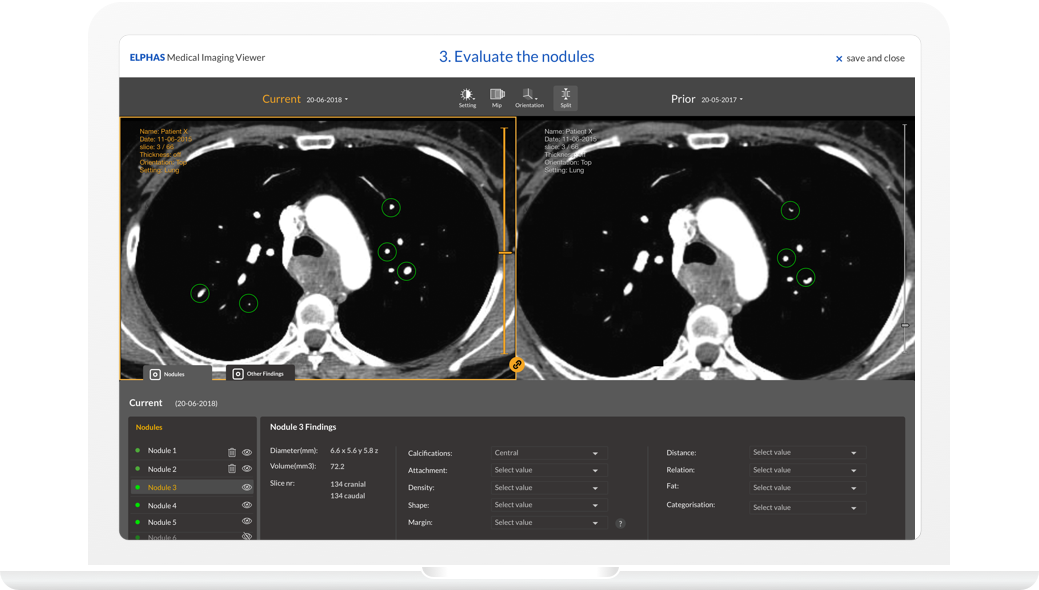Learn volumetry screening
based on the Nelson study.

Learning the Nelson protocol for lung cancer and early diagnosis. A learning tool with unique clinical cases from the trail and a learning system that recreates DICOM view.
register for demoWhat we offer
one year access
Enrollment allows one year access to the training including all periodic updates.
high quality content
The course contains high quality content based on the Dutch-Belgian lung cancer screening trial NELSON.
50 clinical cases
Besides learning the theory, you can practise your skills in 50 unique clinical cases presented in Dicom viewer.
insights in your learning progress
Your personal learning dashboard keeps track of the level of your knowledge and skills.
train on specific learning goals
The course focuses on practising: nodule detection, segmentation-level, evaluation-level, detection of other findings.
a certificate and accreditation
Upon completion, a course certificate will be available to add to your professional portfolio.
Why volumetry screening?
Recent European lung cancer studies have shown that CT lung cancer screening can detect lung cancer at a very early stage, and early detection of lung cancer can dramatically reduce the mortality rate among lung cancer patients. Not only the moment at which the screening takes place is relevant, but the accuracy of the professional interpreting the screening is imperative. Leading lung cancer specialists from eight European countries therefore urge EU countries to set up life-saving lung cancer screening programs as quickly as possible. This position paper regarding advice for lung cancer screening was published in the Lancet Oncology (Oudkerk et. al, Lancet 2017).
One of the most important studies upon which this training is based is the Dutch NELSON study (Oudkerk et. al, Lancet 2017). Preliminary findings suggest an urgency to develop national screening programs. American research (NLST, Pats et.al, 2016) has concurrently shown that screening at an early stage significantly increases the chances for survival among long cancer patients. In short, these studies reach the same basic conclusion: early and accurate lung cancer screening saves lives.
Stay in touch
Get all the latest information about the study and new training programs


